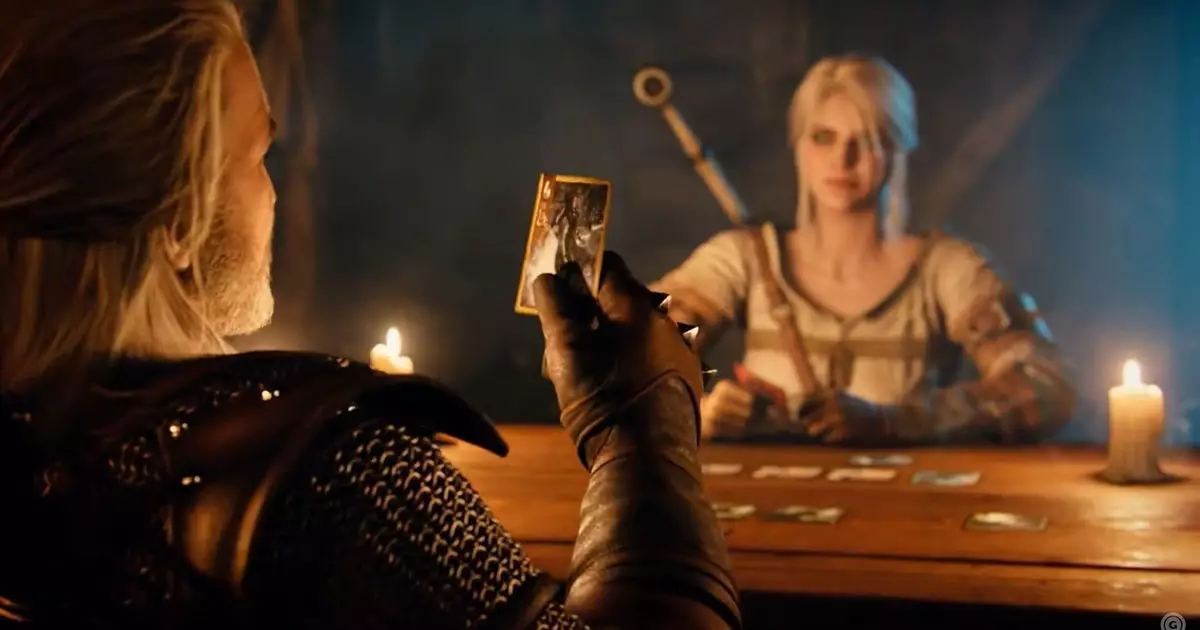In the realm of fantasy gaming, few experiences match the rich tapestry woven by The Witcher series. As developers at CD Projekt Red continue polishing the next installment, anticipation for familiar elements remains palpable, particularly regarding Gwent, the beloved in-universe card game. The backdrop of impending doom serves to intensify the significance of Gwent; while peril looms, the allure of engaging in strategic gameplay remains inviting. The contrast between urgent narratives and leisurely diversions is a hallmark of the franchise, and this dynamic is primed for exploration in the anticipated sequel.
Developer Insights: A Promising Outlook
Recent statements from CD Projekt Red executives hint at the dedication to preserving Gwent’s charm. During an interview, executive producer Gosia Mitręga expressed confidence in the game’s return, assuring players that their enthusiasm aligns with industry trends and player feedback. “I don’t think anyone will be disappointed,” she proclaimed, underscoring the studio’s commitment to listening to its dedicated fanbase. Game director Sebastian Kalemba echoed this sentiment, affirming Gwent’s integral role within the game’s universe and hinting at an evolution rather than a mere repeat of its previous incarnation.
This enthusiasm stems not only from an appreciation for Gwent’s strategic depth but also from its illustrious history within the Witcher universe. Its original introduction in The Witcher 3 was not merely a distraction but a delightful mechanic that added layers to the storytelling, and its expansion into a standalone game, as well as a free-to-play multiplayer variant, signifies its widespread acceptance and the potential for further innovation.
The Evolution of Gwent: Past and Future
Gwent’s journey reflects the evolving nature of gaming itself. Initially inspired by the physical card game Condottiere, Gwent has seen numerous iterations, each refined to complement the narrative complexity of The Witcher universe. However, the multiplayer variant has occasionally strayed far from its origins, often leading to confusion among players new and old. The lessons learned from past designs and player feedback will undoubtedly inform the development of this beloved card game in Witcher 4.
The community has expressed a desire for familiarity, and with this sequel, there comes an opportunity to blend nostalgia with innovative mechanics. The challenge for the developers will be to integrate new gameplay strategies while retaining the simplicity that made Gwent enjoyable. Players will undoubtedly be curious about the tactical possibilities, such as the frost strategy that proved effective in previous iterations—a perfect example of how nostalgia and innovation can coexist.
As excitement builds for The Witcher 4, the confirmation of Gwent’s return serves both as a comfort and an invitation for further culinary delights in the gaming experience. By honoring the essence of what made the card game popular while embracing the potential for reinvention, CD Projekt Red stands at the precipice of creating something truly special. Players can look forward to diving back into the enchanting world that balances danger with strategy, where every card played could mean the difference between victory and defeat. If history holds any weight, Gwent is set to evolve magnificently alongside the beloved characters and stories that define The Witcher.

